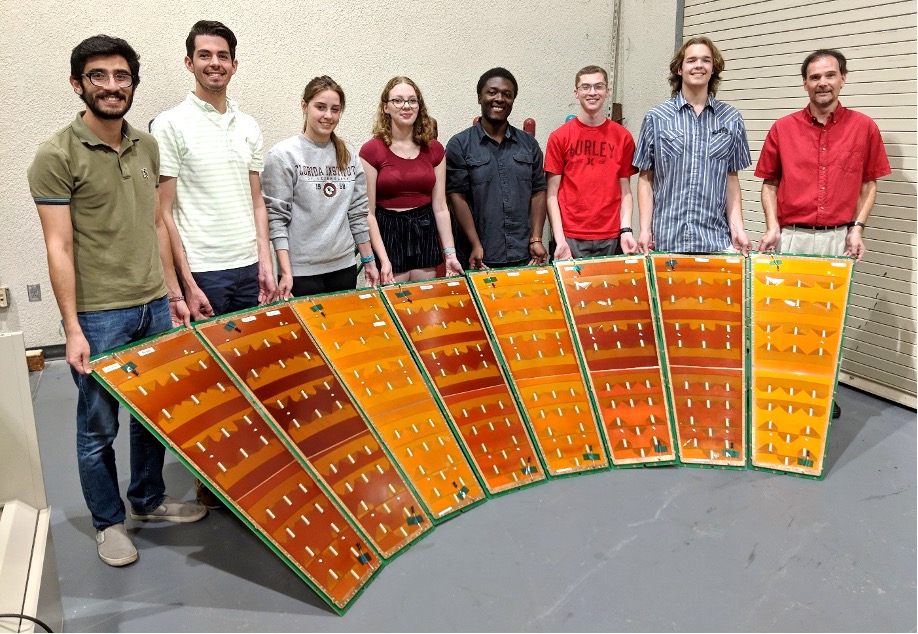Florida Tech Hardware Installed in Large Hadron Collider
By Marcus Hohlmann
New hardware for the detection of subatomic particles built by the Florida Tech High Energy Physics group was installed this fall in the Compact Muon Solenoid (CMS) experiment at the Large Hadron Collider (LHC) operated by CERN in Geneva, Switzerland.
The installation is the first of a series of sub-system upgrades to the CMS experiment that will allow it to operate at a five-fold-increased proton-proton collision rate at the LHC.

Florida Tech aerospace, physics and space sciences professor Marcus Hohlmann and his doctoral and undergraduate students had constructed and tested a set of eight large Gas Electron Multiplier (GEM) detector modules in the physics high-bay laboratory of the Olin Physical Sciences building in 2018. These GEMs, together with a large number of identical modules produced by other CMS groups in Belgium, Germany, India, Italy and at CERN, were then instrumented with custom-made readout electronics at CERN in 2019 and subjected to a variety of stringent performance tests through this summer.
Last month, the collaboration completed the underground installation of all GEM detectors in the endcap “nose” of the CMS muon detection system. This sub-system detects and analyzes muons, an elementary particle and heavier cousin of the familiar electron. Muons are an important tool in particle physics because they are relatively easy to detect and many interesting, short-lived particles decay into muons. In fact, earlier this year the CMS collaboration reported the first experimental evidence for rare decays of the famed Higgs boson into two muons – in essence confirming a prediction by the standard model of particle physics.
The new GEM detectors are now being commissioned at CERN to run in concert with the other CMS sub-detectors to get them ready for detecting muons from collisions in 2021. That is when the LHC and the associated accelerator complex will resume operations after a shutdown for maintenance and upgrades.
Over the next several years, Hohlmann and his students are looking forward to a big harvest of muons measured with an instrument that they helped build at Florida Tech. They will be sifting through the new muon data to hunt for dark matter particles that may have been produced at the LHC and decayed into muons.





